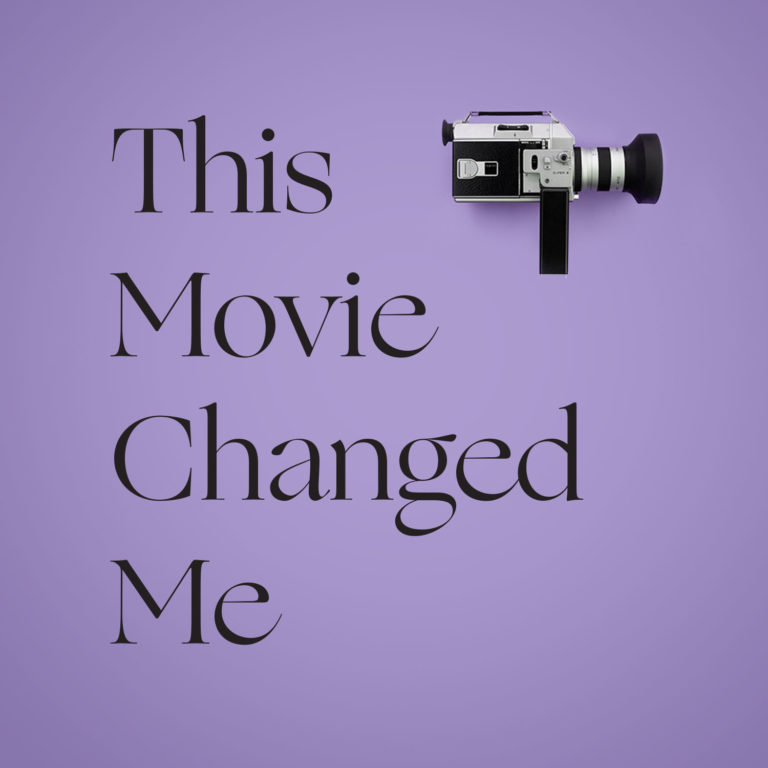Scott Oliver
The Big Lebowski
Looking for some chill in your life? For the 20th anniversary of The Big Lebowski, Scott Oliver talks about how the movie helped him keep perspective in a time of chaos. In typical Dude fashion, he remembered “nothing is f***ed,” even if it felt that way.

© All Rights Reserved.
Guest

Scott Oliver Scott Oliver is a writer who’s covered everything from cricket and soccer to rave culture and conspiracy theories. He’s written for VICE, The Guardian, and ESPN, among others. His essay “'The Big Lebowski' Was the Film That Taught Me to Take It Easy, Man” inspired this conversation.
Transcript
Lily Percy, host: Hello, fellow movie fans. I’m Lily Percy, and I’ll be your guide this week as I talk with Scott Oliver about the movie that changed his life, The Big Lebowski. If you haven’t seen it, don’t worry. We’re gonna give you all the details you’ll need to follow along, but I hope you brought your own White Russian.
[music: “The Man in Me” by Bob Dylan]
Ms. Percy: The first time that I saw The Big Lebowski, I didn’t know what I was watching. I don’t think it was until probably the second or third time that I really got what was going on. And even then, I knew the movie was not about the plot. The plot is still confusing to me. There’s a supposed kidnapping, some stolen money, and a case of mistaken identity. But throughout all of this, what was really clear to me was how much I loved spending time with these characters.
[excerpt: The Big Lebowski]
The two main characters in The Big Lebowski are The Dude and Walter. The Dude, as played by Jeff Bridges, is the ultimate slacker hero. But he’s also really deep. He has this amazing Zen quality to him that brings calmness to the screen when you’re watching him and all these messy situations that he finds himself at the center of. Somehow, The Dude always manages to keep cool.
[excerpt: The Big Lebowski]
On the other hand, Walter, as played by John Goodman, is a loud, hilarious veteran who loves bowling, conspiracy theories, and — whenever he gets the chance — bringing up the Vietnam War.
[excerpt: The Big Lebowski]
Even though the plot in The Big Lebowski is difficult to understand, the characters of Walter and The Dude are so funny that you really don’t even care what’s happening on screen. You just want to spend as much time as possible with these two guys and listen to what other crazy stuff is going to come out of their mouths.
[excerpt: The Big Lebowski]
The Dude’s ability to always remain “The Dude” — his ultimate Zen-ness — is something that Scott Oliver really admired. Scott is a sports writer who’s found himself in his own “Big Lebowski,” crazy moments throughout his life. Time and time again, the idea that The Dude carries, of being chill no matter what life throws at you, has really helped him.
Ms. Percy, host: Scott, part of the background to this series — the idea is that movies are kind of my sacred space. They’re where I go to learn, where I go to connect with the world, where I go to connect with myself. So I wonder, what role have movies played for you in your life? What have they meant for you?
Scott Oliver: They’ve first of all been an art form that I’ve appreciated as a critic. And if the film can pierce my cold, rational demeanor, then maybe they have an emotional effect on me as well. Actually, that’s not true. I cry quite a lot at the movies, and generally my criterion for choosing movies is I need to be moved to tears by the triumph of the human spirit over adversity. I am a bit of a weeper.
I didn’t cry at The Big Lebowski [laughs] you won’t be surprised to learn. But generally, I think I like to see underdog stories and people who get the better of their negative side, or of the temptation to act in a shitty, small-minded way. That’s what I look out for.
Ms. Percy: When did you first watch The Big Lebowski? How old were you, and what was going on in your life?
Mr. Oliver: Is the film ’98?
Ms. Percy: I believe so, yeah.
Mr. Oliver: It would have been around that time — I would have either been between my first degree and my master’s degree. It wasn’t like a big occasion or anything. It’s just one of those slow-burner films. I think the quality of the writing and how well-drawn the characters were — the dialogue just kind of permeates your life, and you start finding situations that it’s relevant in — kind of goofball, playing around with your friends, not just parroting these lines, but actually finding a context where you can use them meaningfully. Usually, it makes everybody who’s in on the in-joke split their sides. That’s how I got immersed in it in the first place, I would say.
[excerpt: The Big Lebowski]
Ms. Percy: It’s interesting, because I was reading up on the film preparing for this, and I came across this quote that Joel Coen — who co-wrote and co-directed this with his brother, Ethan — said: that the plot is sort of secondary to the other things that are going on in the movie. So even if you were confused about the plot, it doesn’t actually matter because that’s not the point of the film. It’s really true. I find that I don’t even remember what ends up happening to the money. It doesn’t matter to me. What I end up caring about is the dialogue and the characters. I wonder if you think — I mean it’s because it’s well written, but what else makes it stand out in that way, where the plot really is secondary?
Mr. Oliver: I think it’s an interesting point, though, on the plot. It’s quite a deep, albeit indirect, philosophical point they’re not making explicitly, but it’s just there because of the way they treat the plot as this meandering, haphazard thing, which is really secondary, which isn’t the prime reason you’re engaging with the world.
I think a lot of people try to superimpose meaning onto life in general and onto their own lives. But I don’t think that really captures how the world works. There’s randomness and chaos that just kind of tweaks things. There is some order, but it’s always in this kind of contradiction with chaos. The Big Lebowski, getting back to that, really isn’t trying to give you an overarching meaning. It isn’t trying to suggest that everything runs in a nice, straight line. And I don’t think you need to believe that to enjoy a) living and b) this film. So if you’ve lost the plot, that’s a good thing.
Ms. Percy: [laughs] That reminds me of something you wrote in the piece that you did for Vice — when you were talking about one of the many things that you’ve learned from The Dude and from The Big Lebowski. You said, “That day, I understood that it’s not what happens to you that counts. It’s how you perceive and process life’s strikes and gutters. Having a nervous breakdown? Lost 15 months work? Nothing is fucked.” I wonder, how has this shaped you? Clearly, The Dude has been a big influence in your life. How have you taken these bigger philosophies into your own life?
Mr. Oliver: It’s one thing to write that as a nice closing line to an article. It’s quite another to live by it totally. I think The Dude and Walter represent the two poles of my personality — and probably everybody’s, up to a point. Given the external circumstances and the triggers and pressures of life, I think people fluctuate along this spectrum. While everybody would like to be as ostensibly Zen as The Dude is most of the time, if you’ve got a guy like Walter hanging around and pushing your buttons, it’s quite easy [laughs] to lose your shit from time to time.
[excerpt: The Big Lebowski]
Mr. Oliver: When you find yourself behaving like Walter, then you have to try and find that Dude somewhere inside you. That line — people say that The Dude is this kind of emblem of Taoism or Zen. I’ve just used the phrase myself. But I don’t think it’s as simple as saying you just go with the flow and passively accept the world. That really gets back to that idea of fate and destiny, and there’s some kind of overarching truth and pattern to things, and which I just don’t buy at all. But in terms of going with the flow, processing meaning in your way, and getting things in proportion so that these things don’t make you crazy or overly angry, then, yeah, definitely — I took something from that to put things in perspective and proportion, and nothing is fucked, ultimately, even if it seems that way. [laughs]
Ms. Percy: As you were talking about this, I made a connection that seems completely bizarre. I remember reading an interview with Darren Star, who’s the creator of Sex in the City. He talked about how all four characters actually make up one woman. They all have very different personalities that are supposed to reflect one woman. I’ve never thought of The Dude and Walter being one man, but in some ways, it is like they’re the two sides. There’s the side that wants to the be The Dude, wants to be chill and calm and take things in stride and be really patient; and there’s the Walter side of us that just wants to basically beat the shit out of everyone, every day.
Mr. Oliver: Yeah, and the problem is, for The Dude, that when Walter’s around, sometimes, he brings out the Walter in The Dude as well. [laughs]
The lines are quite blurred. One of my favorite scenes in the film is when they’re driving to do the handoff, and Walter just cannot help himself from interrupting The Dude’s conversation. He ends up saying, “Calmer than you are.” It’s just that sort of subtle way they have of getting under each other’s skin. In a way, that’s the kind of charm of their relationship. You don’t need to get along 100 percent of the time to get along, as long as that deep affection between them …
I think they are — maybe not like Taoist, black-and-white, yin-yang halves. But maybe they represent the kind of poles or limits. People fluctuate along those, so you become a bit more Walter or a bit more Dude according to the situation or the pressures.
[excerpt: The Big Lebowski]
[music: “Lujon” by Henry Mancini]
Ms. Percy: I hope you’re enjoying my conversation with Scott. As you can tell, we love to talk about movies here. So please reach out and let us know what movies are changing your life. We’re on Facebook and Instagram at thismoviechangedme — all one word — and Twitter at TMCMpodcast. Let us know what you’re connecting with on the show, or what you wish we’d do differently. We love hearing from you.
[music: “Just Dropped In (To See What Condition My Condition Is In)” by Kenny Rogers & The First Edition]
Ms. Percy: Let’s talk about the lines and the dialogue, the quoting that everyone does of The Big Lebowski. It’s kind of what it’s known for. People who haven’t even seen the movie can recite lines from it, right? — “The Dude abides.” “The rug really ties the room together.”
My favorite lines actually all come from The Stranger, played by Sam Elliott. I love when he says, “Sometimes, you eat the bar, and sometimes, the bar eats you.” And then, “Sometimes, there’s a man. Well, he’s the man for his time and place, and he fits right in there.” [laughs]
I’m just wondering, what are your favorite lines? I feel like we can’t talk about this movie without quoting it.
Mr. Oliver: So many. I like that one, the opening line, because in the Vice piece you mentioned, one of the moments this film really burrowed deep into my life was with my friend in Turkey. He’d just split up from a girlfriend. He was going into a nervous breakdown. I had just lost, basically, 18 months’ work on my Ph.D., and I was devastated. We found ourselves, a month later, in Turkey selling advertising to property companies. It was a bit Wild West, the job, and it was totally different to what I was doing before. Every situation on that trip seemed to bring out a quote or something that was relevant. We kind of healed each other through popping these quotes out to one another. For instance, “Fuck it, Dude. Let’s go bowling.” It broke the tension immediately.
There are so many great lines. The Dude in the back of the limo — that whole scene is absolute perfection, how he delivers his lines. I’ve read something with one of the two Coen brothers, where he said that the exact amount of “Uh, uh, uh, uhs” in that scene were delivered on point by Jeff Bridges. The whole “New shit has come to light” thing, “Nothing is fucked,” “Have you ever considered, uh, uh, uh,” “Has it ever occurred to you, uh, that this may not be just, uh, just a simple, uh …” — writing that in as someone’s character trait and then performing that is just next-level brilliant for me.
Ms. Percy: That scene, though, when I watched it, I remember thinking — I watched it again last night, and I was like, this is why the Oscars and all award shows are crap, because that scene should have gotten him an Oscar. Crazy Heart’s great, but Jeff Bridges should’ve won for The Dude — because how can you make that performance look as natural as he made it?
[excerpt: The Big Lebowski]
Was there anything else that you’d like to say about The Big Lebowski or The Dude that I haven’t asked you about?
Mr. Oliver: I would love to think that in the era of these kind of culture wars between this really xenophobic, closed right and people who are, despite provocation, still trying to do the right thing — I think people embroiled in those culture wars could learn a little bit, in an indirect way, from this film about not getting too wound up by things which aren’t that important and not magnifying everything all the time and turning it into a potential site of conflict. The world is a different thing now with social media. Everybody’s getting pissed off all the time [laughs] about all kinds of things.
In a world like that, you can definitely learn something from The Dude. Like, just log off occasionally. Just let things wash over you a little bit. Go bowling. Have the odd acid flashback or drive around. Just don’t get pissed off all the time, because you’ll quickly run out of nervous energy and be a basket case fairly soon.
Ms. Percy: Amen to that.
[music: “Oye Como Va” by Santana]
Ms. Percy: Scott Oliver has written on everything from “LSD-Fuelled Anti-Religion” to cricket and rave culture. He contributes to The Guardian, Vice, and ESPN, among others. His Vice piece — “‘The Big Lebowski’ Was the Film That Taught Me to Take It Easy, Man” — inspired this conversation and is definitely worth a read.
On the next This Movie Changed Me, I’ll be talking with one of my favorite movie writers, Angelica Jade Bastién on the movie Now, Voyager, featuring the iconic Bette Davis. The movie is over 75 years old, and I’ll be honest, I was a little skeptical of it before watching. But it seriously blew me away. You’ve got two weeks to watch it before our next conversation‚ and you can find it on all the usual streaming platforms.
This Movie Changed Me is produced by Maia Tarrell, Chris Heagle, Tony Liu, and Marie Sambilay, and is an On Being Studios production. Subscribe to us on Apple Podcasts or wherever you find your podcasts. And we’d love it if you’d leave us a review. I promise that we do read them.
I’m Lily Percy, and “yeah, well, you know, that’s just, like, your opinion, man.”






